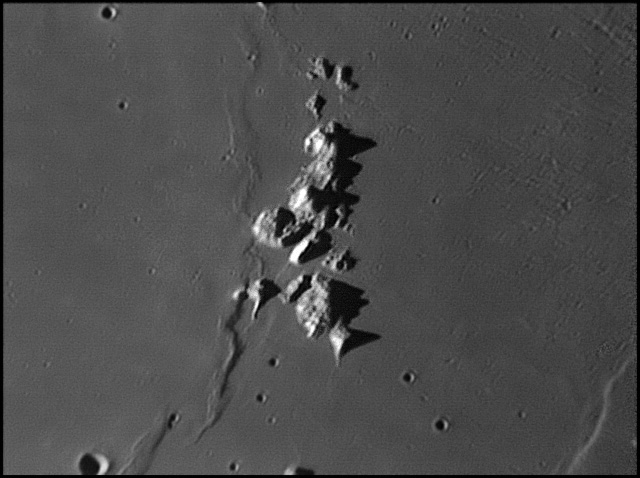image by Damian Peach
This image shows a mountainous ribbon strewn across a flatland. It would appear to be a lonely place to live with nothing happening for hundreds of kilometers in any direction. But look closely - there are lines of small pits converging off the image to the right - something happened here. It was the formation of Aristillus, probably 1.29 billion years ago, spewing secondary craters across eastern Mare Imbrium. The Spitzbergen Mountains stood their ground as they had been doing for 2.6 b.y., when the Imbrium collision formed them as an inner basin ring. If this was the mode of formation they are pieces of the rocks under Imbrium, uplifted 3-5 kilometers above their original position. Maybe this neighborhood hasn’t been so quiet…
Technical Details:
20 April, 2006. C14 @ F41. Lumenera LU075M.
Related Links:
Rükl chart 12
Damian’s website
Four more views
LPOD earns a commision when you buy ANY book from Amazon thru LPOD
Have you bought a book lately?
COMMENTS?
Click on this icon File:PostIcon.jpg at the upper right to post a comment.




